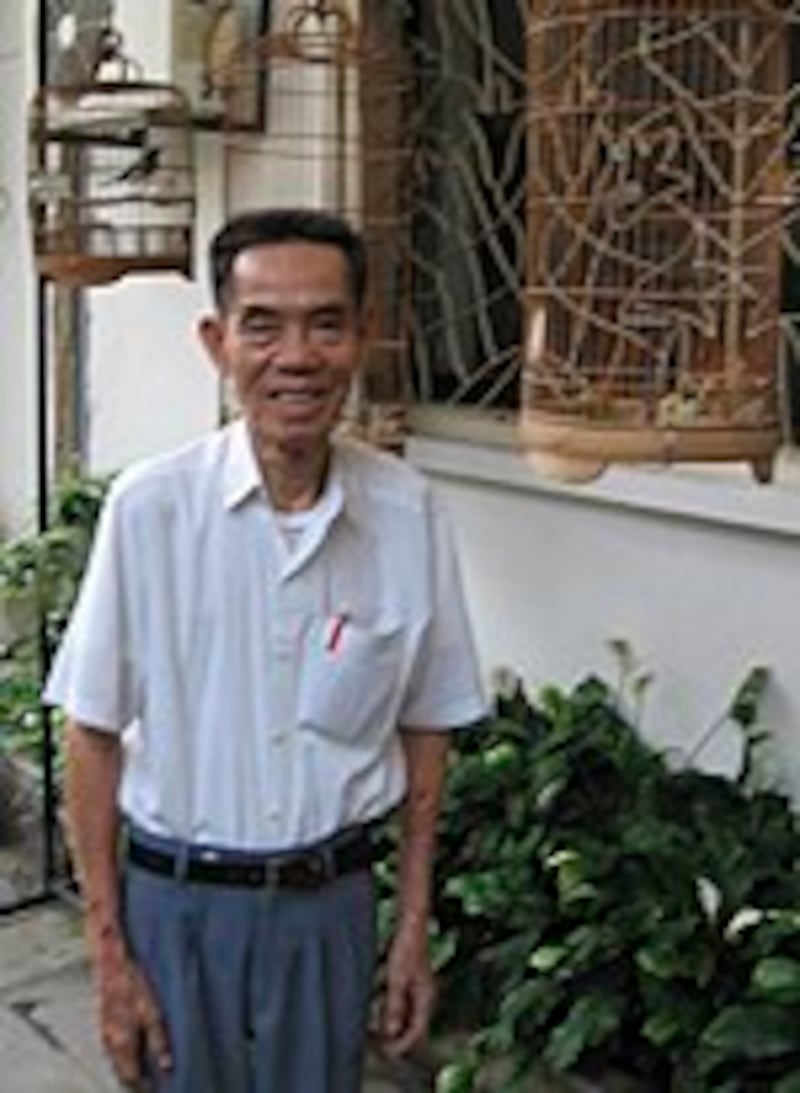
HO CHI MINH CITY—;On April 28 I meet with a man who was one of the top Viet Cong spies during the Vietnam war.
I had known Pham Xuan An when he worked as a Time magazine correspondent. I learned a year or two after the war that An had had a second job - spying for Hanoi.
At age 78, he's now a retired general in the People's Army.
When I think of An, I always think of the last day of the war, at the end of April 1975, when he told me over the phone that an old source of his and mine, Tran Kim Tuyen, could not find a way to flee the city. Tuyen had been national intelligence chief for South Vietnam in the early 1960s. He would have been in mortal danger had his Communist enemies captured him.
Getting ready for my own departure by helicopter from the U.S. embassy, I was able to reach an American official who could help. He told me where Tuyen could find a helicopter leaving from an apartment building rooftop.

©;
I called An at the Time magazine office with that information before the embassy phone system broke down. An rushed Tuyen to the designated address - and to freedom.
In 1982, I was in Saigon for a few days on my way to Cambodia. In those days any reporter passing through Saigon ended up with a Viet Cong "handler." Mine was an old cadre, Phuong Nam. I asked him if I could see An. Phuong Nam told me that he'd check, and then came back with the answer: "He's not seeing foreign visitors."
"He lied to you," An says shortly after I enter his Saigon villa for our first meeting in 30 years. "I did want to see you."
I'm with my son, Matt, and two old Associated Press colleagues.
Educated at a community college in California in the mid-1950s, An was in many ways the perfect spy. At the time most of us knew him, he led a modest but bourgeois lifestyle. He enjoyed song birds and gambled on fighting cocks. He loved dogs, especially the big German Shepherd that kept him company at the time.
Like many other reporters, I used to meet An and other South Vietnamese journalists at Givral's coffee shop near the old Continental Hotel in the center of Saigon. The wiry An chain-smoked American cigarettes. I drank strong black coffee laced with condensed milk.
An seemed to know a great deal about the strengths and weaknesses of the American and South Vietnamese military forces. But I can't remember ever pursuing a story based on what he told me. Later, An told returning reporters that he'd never tried to plant a story on any of them because it would have blown his cover.
What strikes me first about An upon seeing him for the first time in 30 years is how little he seems to have changed.
I had been told that he had emphysema and was in extremely bad health. But he speaks almost effortlessly for two to three hours, pausing only to sip juice brought in by a maid. An oxygen tank sits in the corner of the room, but he doesn't touch it.
An has spoken a number of times since the end of the war of his disillusionment with Vietnam's Communist leaders. In answer to a question, An says that they're "much more corrupt" than the leaders of the old South Vietnamese regime.
I tell him of my impression that the government is following the Chinese model - opening up the economy to foreign investment and private enterprise while tightly controlling dissent. He agrees but argues that they may be making a mistake in adapting aspects of the Chinese banking system. It's burdened with bad loans, he says.
At the end of the war, perhaps in part because he helped a number of anti-Communists like Tran Kim Tuyen to flee the country, An was not entirely trusted by the new regime. He lived under virtual house arrest for a year or so. And because he had been so close to many Americans, he had to take "reeducation classes."
In 1997, the Vietnamese government denied An an exit visa that would have permitted him to appear on a panel in New York City to discuss the legacy of Vietnam.
Meeting a top Viet Cong spy for the first time in 30 years should have meant a chance to gain new insights. But I only come away with more questions.
How much damage did he do? Did people I knew die because of his reports?
We'll never know, because An won't say. Perhaps he himself doesn't even know.
I can only say with certainty that on the last day of the war he helped to save the life of a man who strongly opposed the goals that An secretly worked toward most of his life. I will always remember An for that.
Produced for the Web by Maggy Sterner
